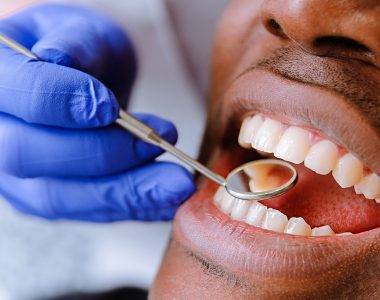
Introduction
Travelling abroad offers exciting opportunities to explore new cultures, landscapes, and experiences. However, with the excitement of travel comes the responsibility of ensuring your health and well-being on the road. In this comprehensive guide, we will delve into various aspects of travel health and complications abroad, including thorough pre-travel preparations, common health concerns, necessary vaccinations, strategies for staying healthy during your journey, and what to do when faced with health complications while abroad.
Section 1: Pre-Travel Preparations
1.1 Researching Your Destination
Before embarking on your adventure, it is essential to immerse yourself in the destination’s specifics. Research should encompass an understanding of the local health risks, including infectious diseases, healthcare quality, and environmental challenges that could affect your well-being. Knowledge is the first line of defence when it comes to staying healthy abroad.
For example, if you are heading to a tropical destination, understanding the risk of mosquito-borne diseases like malaria and dengue is crucial. In regions with unstable political conditions or limited healthcare infrastructure, you may want to be extra vigilant about potential health risks.
1.2 Consult with a Travel Health Specialist
A visit to a travel health specialist or your primary care physician is a vital step in preparing for international travel. These professionals can provide you with personalized advice based on your medical history, destination, and the activities you plan to undertake.
A travel health consultation typically covers a range of topics, including:
- Required and recommended vaccinations
- Prescription medications for common travel-related illnesses
- Strategies for managing pre-existing medical conditions abroad
- Discussion of any health concerns specific to your destination
- Tips on food and water safety
Moreover, this is the time to ensure your routine vaccinations are up to date. While routine vaccines are generally recommended, some destinations might have specific requirements or recommendations that you should discuss with your healthcare provider.
1.3 Travel Insurance
Investing in comprehensive travel insurance is a smart decision that can provide peace of mind and financial security during your travels. Travel insurance can offer coverage for various unexpected circumstances, including:
- Medical emergencies: Coverage for doctor visits, hospital stays, and prescription medications.
- Trip cancellations or interruptions: Reimbursement for non-refundable expenses due to unexpected events like illness, family emergencies, or natural disasters.
- Lost luggage: Compensation for lost or stolen baggage and personal items.
- Travel delays: Coverage for expenses related to delayed or cancelled flights.
- Emergency evacuation: Assistance in arranging medical evacuation if you fall seriously ill in a location with limited medical facilities.
It’s crucial to choose a travel insurance plan that suits your specific needs. Be sure to understand the extent of coverage, any exclusions, and how to initiate a claim in case you need it. Make copies of your insurance documents, and have digital copies available on your phone for easy access in case of an emergency.
Section 2: Common Health Concerns Abroad
2.1 Food and Water Safety
Contaminated food and water are among the most common causes of health issues for travellers. Consuming food or beverages that are not properly handled or cooked can lead to traveller’s diarrhoea, food poisoning, and other gastrointestinal ailments.
Here’s what you can do to safeguard your food and water consumption while abroad:
- Stick to Bottled Water: In areas with questionable water quality, opt for bottled water, even for brushing your teeth.
- Avoid Ice: Ice is often made from tap water, so it’s safer to skip it in your drinks.
- Practice Safe Eating: Be discerning about where and what you eat. Choose restaurants with good sanitation practices, and avoid street food if you’re uncertain about its safety.
- Peel Fruits and Vegetables: When you’re in doubt, peeling fruits and vegetables can reduce the risk of contamination.
Furthermore, carrying a small supply of over-the-counter medications for gastrointestinal issues can be a lifesaver if you do experience stomach troubles.
2.2 Vector-Borne Diseases
In many regions, vector-borne diseases, which are transmitted by insects such as mosquitoes and ticks, pose a significant health risk to travellers. Some of the most common vector-borne diseases include malaria, dengue fever, Zika virus, and Lyme disease.
Preventive measures for vector-borne diseases include:
- Insect Repellent: Use insect repellents containing DEET or other recommended ingredients to deter mosquitoes and ticks.
- Protective Clothing: Wear long-sleeved shirts, long pants, and closed-toe shoes to reduce skin exposure.
- Bed Nets: When staying in accommodations without air conditioning or screens, bed nets treated with insect repellent can provide effective protection.
- Vaccinations: Some destinations may require or recommend vaccinations for specific diseases like yellow fever. Ensure you are up-to-date on these and follow the recommended vaccination schedules.
Before travelling to areas where vector-borne diseases are prevalent, consult your healthcare provider or a travel health specialist for guidance on appropriate preventive measures and potential medications.
2.3 Altitude Sickness
Altitude sickness is a health concern that travellers often underestimate when visiting high-altitude destinations, such as the Andes or the Himalayas. Symptoms of altitude sickness can include headaches, nausea, shortness of breath, and fatigue.
To mitigate the risk of altitude sickness:
- Gradual Ascent: If possible, acclimatize slowly to higher altitudes, allowing your body time to adjust.
- Stay Hydrated: Drinking plenty of water can help alleviate symptoms.
- Over-the-Counter Medications: Some travelers find relief using over-the-counter medications like acetazolamide. Consult your healthcare provider for advice.
- Descending: In severe cases of altitude sickness, descending to lower elevations may be necessary.
Understanding the symptoms and risk factors associated with altitude sickness and being prepared to adjust your plans accordingly can help prevent complications at high altitudes.
2.4 Traveler’s Diarrhea
Traveller’s diarrhoea, often colloquially referred to as “Montezuma’s Revenge” or the “Delhi Belly,” is a common ailment experienced by travellers. It is typically caused by the consumption of contaminated food or water. Symptoms can range from mild discomfort to severe gastrointestinal distress.
To prevent and manage traveller’s diarrhoea:
- Food and Water Safety: Practice safe eating and drinking habits, as discussed earlier.
- Over-the-Counter Medications: Consider carrying medications like loperamide (Imodium) to alleviate symptoms.
- Hydration: Ensure you drink enough fluids to prevent dehydration, which can exacerbate symptoms.
It’s also worth discussing traveller’s diarrhoea and potential treatments with your healthcare provider before you travel. They can provide guidance on self-treatment and whether you should carry specific medications or antibiotics for your trip.
Section 3: Necessary Vaccinations
3.1 Routine Vaccinations
Ensuring your routine vaccinations are up-to-date is the foundation of travel health. Routine vaccinations, such as those for measles, mumps, rubella, and tetanus, are important not only for domestic health but for international travel as well.
Here are some essential routine vaccines that travellers should have:
- Measles, Mumps, Rubella (MMR): These vaccines protect against contagious viral infections.
- Tetanus, Diphtheria, Pertussis (Tdap): Tetanus, diphtheria, and pertussis are bacterial infections that can have serious health consequences.
- Varicella (Chickenpox): Chickenpox can cause severe illness in adults who have not had it before.
- Influenza: The flu can be contracted in many parts of the world, so having an annual flu vaccine is advisable.
3.2 Destination-Specific Vaccinations
Depending on your travel destination, there may be specific vaccines that are required or highly recommended. Some common examples include:
- Yellow Fever: This vaccine is required for entry into certain countries in Africa and South America.
- Typhoid: Typhoid fever is a bacterial infection often associated with contaminated food and water in regions with poor sanitation.
- Hepatitis A and B: These vaccines protect against viral infections spread through contaminated food, water, or bodily fluids.
Before your trip, consult with a travel health specialist or your healthcare provider to determine which vaccines are necessary or recommended for your specific destination. Keep in mind that some vaccines may require multiple doses or need to be administered weeks in advance of your travel, so plan accordingly.
3.3 Malaria Prophylaxis
Malaria is a potentially deadly disease transmitted by infected mosquitoes in many parts of the world. While there is no malaria vaccine, prophylactic medications can help reduce the risk of infection.
To protect against malaria:
- Consult a Travel Health Specialist: Discuss your destination and itinerary with a travel health specialist who can recommend the appropriate antimalarial medication.
- Take Medications as Prescribed: Ensure you take your antimalarial medication as prescribed, both during your trip and for the recommended post-travel period.
- Use Insect Repellent: Combine antimalarial medication with insect repellent and protective clothing to further reduce your risk.
Section 4: Staying Healthy on the Road
4.4 Safe Sex Practices
Engaging in sexual activity while travelling carries certain health risks, including sexually transmitted infections (STIs). To protect your sexual health:
- Use Protection: Consistently use condoms to reduce the risk of STIs.
- Carry Supplies: It’s a good practice to bring a supply of condoms with you, as availability can vary by destination.
- Know Your Partner: Practicing safe sex also means knowing your partner’s sexual history and being open about your own.
Additionally, consider discussing safe sex practices with a healthcare provider before your trip. They can provide advice and may recommend pre-exposure prophylaxis (PrEP) for HIV prevention, especially if you’re visiting regions with higher HIV prevalence.
4.5 Sun Safety
Protecting yourself from the harmful effects of the sun is crucial to maintaining your health while travelling. Exposure to excessive UV radiation can result in sunburn and increase the risk of skin cancer. Follow these tips to stay safe in the sun:
- Use Sunscreen: Apply a broad-spectrum sunscreen with at least SPF 30, and reapply it every two hours or more often if you’re swimming or sweating.
- Wear Protective Clothing: Cover up with long-sleeved clothing, wide-brimmed hats, and sunglasses with UV protection.
- Seek Shade: Avoid direct sun exposure during peak hours (usually from 10 a.m. to 4 p.m.).
Protecting yourself from the sun is essential not only for avoiding sunburn but also for preventing long-term skin damage and lowering the risk of skin cancer.
4.6 Adequate Rest and Hydration
Travelling can be physically demanding, and lack of sleep and dehydration can weaken your immune system and lead to health problems. To stay healthy while on the road, prioritize rest and hydration:
- Get Sufficient Sleep: Ensure you get enough sleep to maintain your energy levels and overall well-being.
- Stay Hydrated: Carry a reusable water bottle and drink plenty of fluids throughout the day. Avoid overconsumption of alcohol and caffeinated beverages, which can lead to dehydration.
Staying well-rested and adequately hydrated will help you stay active, alert, and more resilient to the challenges of travel.
Section 5: Dealing with Health Complications Abroad
5.1 Seeking Medical Care
Despite your best efforts to stay healthy, you may encounter health complications while abroad. It’s crucial to know how to seek medical care and who to contact in case of an emergency. Here’s what to do when you need medical assistance:
- Consult with Local Healthcare Providers: Reach out to local healthcare facilities, clinics, or hospitals for non-emergencies. Many hotels and travel insurance providers also offer assistance in finding appropriate medical care.
- Contact Your Travel Insurance Provider: If you have travel insurance, notify your provider as soon as you seek medical treatment. They can guide you to the most appropriate facilities, help you with payment and claims, and offer other necessary assistance.
- Know Local Emergency Numbers: Familiarize yourself with local emergency numbers, including the equivalent of 911 or 112 in many countries. These numbers connect you to emergency services, including ambulance services.
- Communication and Documentation: Carry copies of essential documents, such as your passport, travel insurance information, and any medical records. Keep both physical and digital copies on hand in case of an emergency. Additionally, learn some basic medical phrases in the local language to aid communication with healthcare providers.
5.2 Dealing with Travel Anxiety
Travelling, especially to unfamiliar destinations, can sometimes lead to anxiety or stress. It’s essential to manage your mental health while on the road. Here are some strategies to help deal with travel-related anxiety:
- Practice Relaxation Techniques: Deep breathing, mindfulness meditation, and progressive muscle relaxation can help you manage stress and anxiety.
- Stay Connected: Maintain contact with friends and family back home. Social support can provide comfort and alleviate feelings of loneliness or stress.
- Seek Professional Help: If you have pre-existing mental health concerns or find that travel-related anxiety becomes overwhelming, don’t hesitate to reach out to a mental health professional who can offer guidance and support.
Incorporate self-care routines, like exercise, a balanced diet, and adequate rest, into your travel plans to support your overall well-being.
Conclusion
Travelling abroad is a magnificent opportunity to explore the world, but it comes with health risks and potential complications. By taking proactive measures to stay healthy, including thorough pre-travel preparations, understanding common health concerns, staying updated on vaccinations, and knowing how to handle health complications when they arise, you can significantly enhance your travel experience. Always prioritize your well-being and don’t hesitate to seek professional help when necessary. Safe travels!



